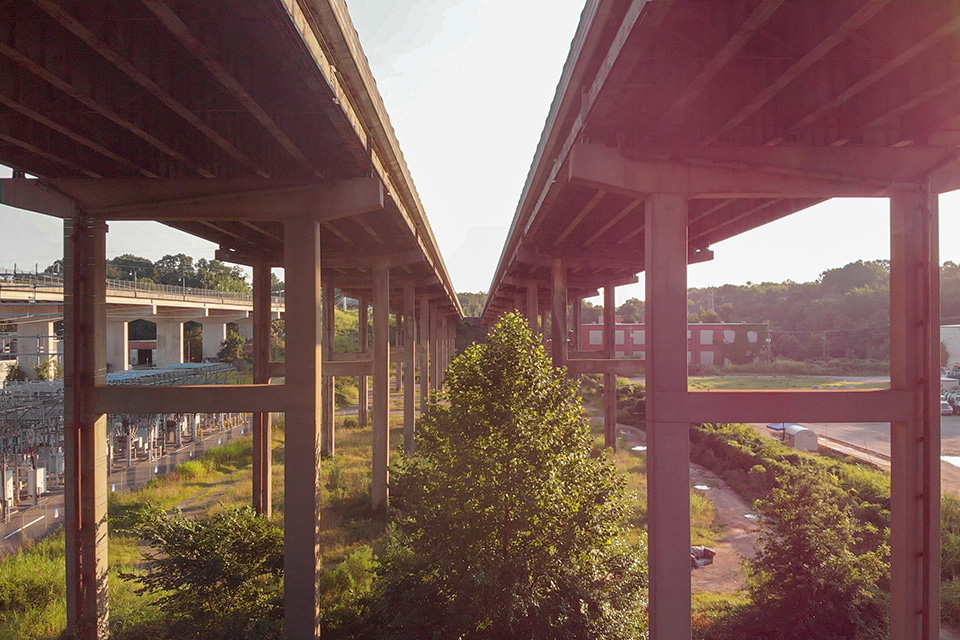Throughlines
Erasure
Erasure as a tool for establishing and advancing the dominance of one culture over another has been a tactic of war, colonization, and oppression for most of human history, and it has supported an American narrative for centuries. Consequently, our shared contemporary cultural awareness of Native peoples and enslaved African Americans, among other groups, remains largely shaped by a redacted history that obscures the violent destruction of lives, cultural traditions, and communities. Collective American interpretation of history often fails to adequately address how enslavement and forced assimilation caused traditions, histories, and other markers of identity to be lost.
 Shockoe Hill African Burying Ground, Richmond, VA - Photo by Barrett Doherty, 2021.
Shockoe Hill African Burying Ground, Richmond, VA - Photo by Barrett Doherty, 2021.
Cultural landscapes have the unique ability to help us resurface eradicated, hidden, and lesser-known stories; however, we face new threats of erasure as climate change causes increasingly severe conditions. In many cases, years of inequitable land distribution and management, unjust environmental practices, and lack of resources and support put the same communities that were most affected by violence and erasure in the past at greatest risk for climate-related threats in the future.